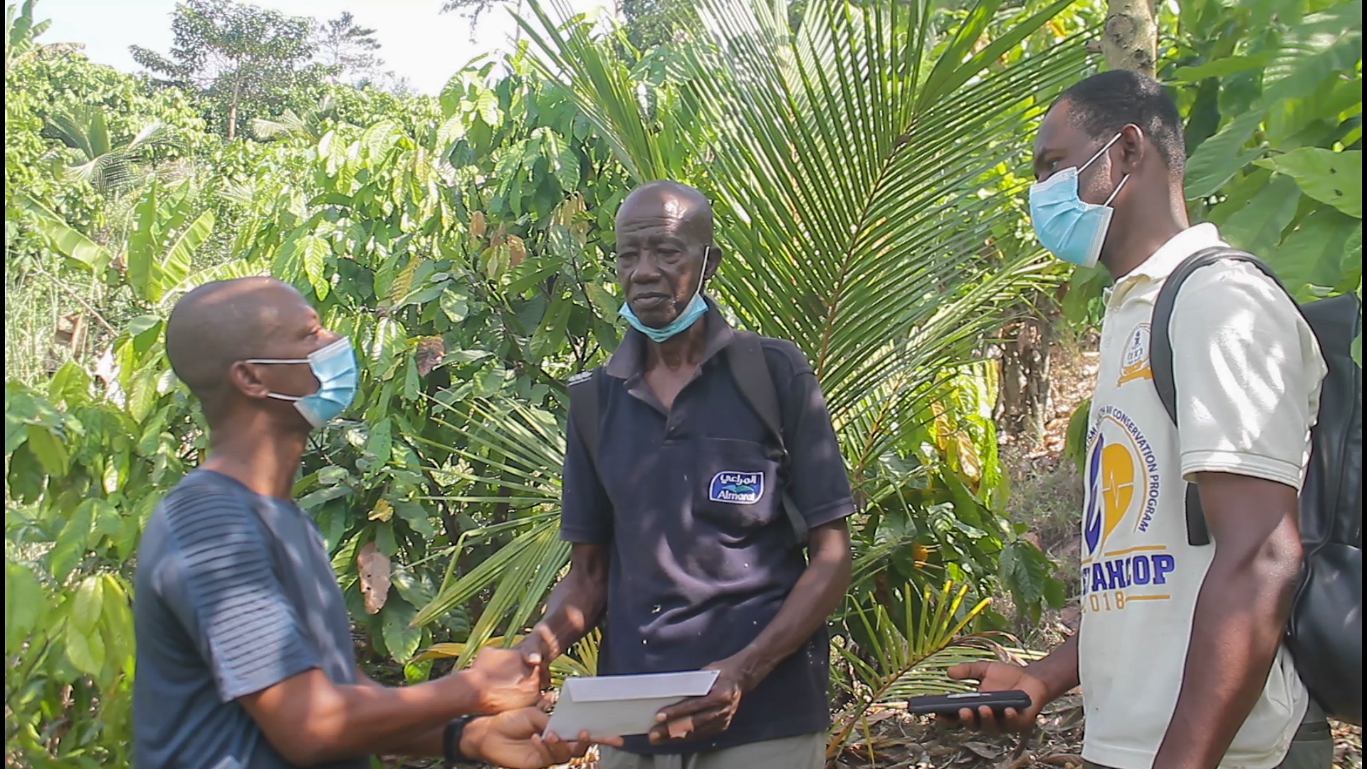Farmers Benefit from ARG’s PES Scheme

Beneficiary Nana Patrick Fosu receiving his payment. He has a wife and 6 children as dependents and 5 farm hands .
Farmers in the Lake Bosumtwe Landscape have benefited from a Payment for Ecosystem Services (PES) scheme instituted by A Rocha Ghana in collaboration with the Climate Stewards to support farmers to diversify their income while contributing to building climate resilience, biodiversity conservation and watershed management.
Simply put as Payment for Ecosystem Service (PES), the idea is to pay landowners to manage their land in a sustainable way that ensures the provision of a “service” rendered by nature, such as clean water, habitats for wildlife, or carbon storage in forests.
The initiative which started in 2020 and is being rolled out in phases has witnessed the payment for ecosystem services for the first pilot cohort comprising four farmers, one community land and one family landholding.
The scheme which falls under the wider Climate Stewards programme, is part of efforts to address threats to the Lake Bosumtwe landscape that serves as a habitat for endemic fish species, globally endangered fauna such as the Epixerus ebii (Western palm squirrel) and Cephalophus jentinki (Jentink’s duiker), as well as important flora such as endangered commercial timber species―Khaya senegalensis and Khaya grandifoliola.
ARG PES Project
The PES scheme is being implemented using the reintroduction of agroforestry as a landscape management tool. The focus of the project is to enhance the resilience of smallholder farmers to the effect of climate change and to open up new possibilities for income generation.
Due to low incentives to plant trees, most farmers are reluctant to pursue tree growing to improve landscape characteristics and sustain ecosystem services currently enjoyed.
The Payment for Ecosystem Services model was therefore used as an incentive to help farmers and the community at large to appreciate the importance and benefits of tree planting in the sustenance of their livelihoods and the conservation of biodiversity.
The aim is also to increase propagation of a variety of indigenous trees and fruit species on smallholder farmers’ fields over the next ten years on a landscape-wide basis.
The first cohort, recruited in 2020, have planted and nurtured 2,500 indigenous trees and over 600 fruit trees covering a total of 8.5 hectares within the lake landscape. The farmers have in turn received a total of GH₵5,534 ($955) for their efforts.
So far, 12 farmers, their 88 dependents, and 45 community members have benefited directly from undertaking tree planting and nurturing.

